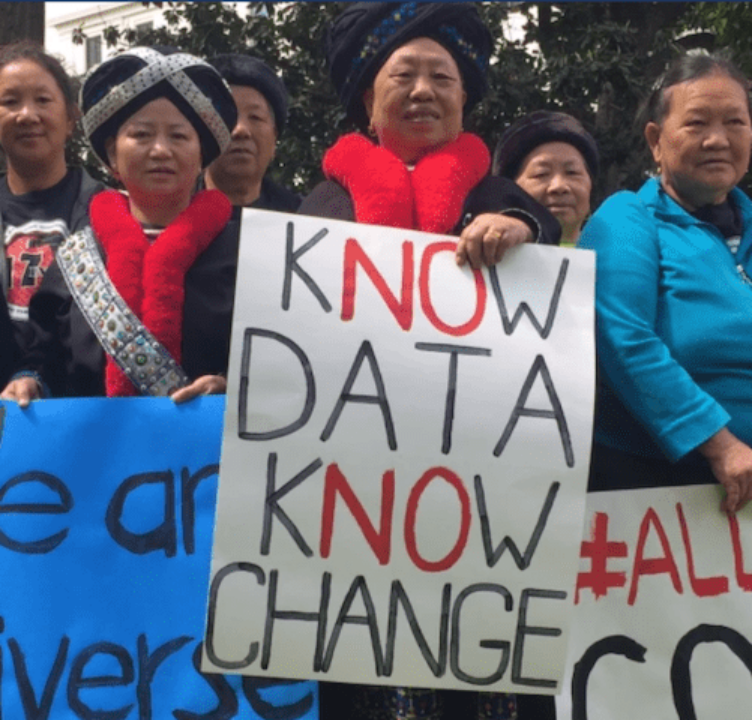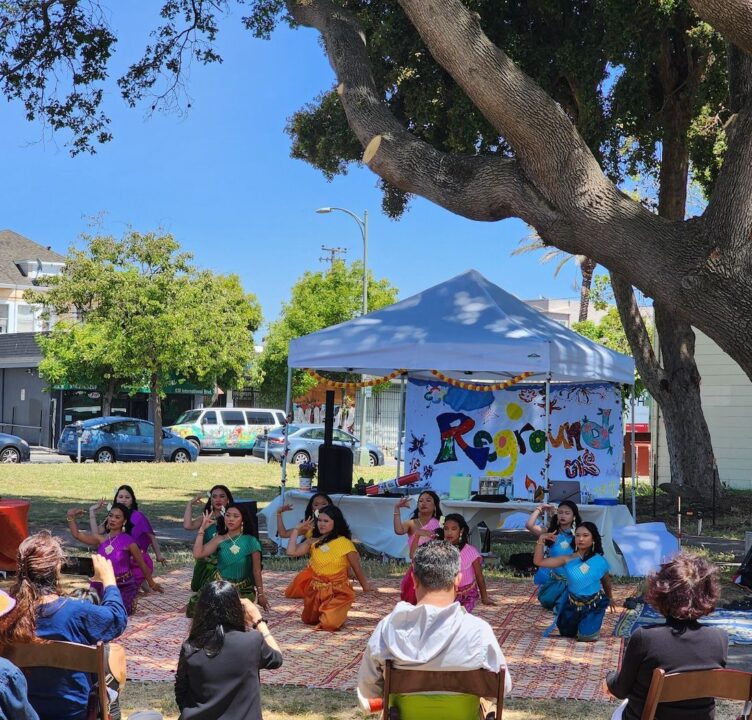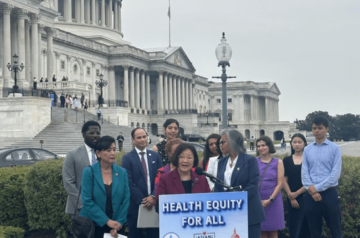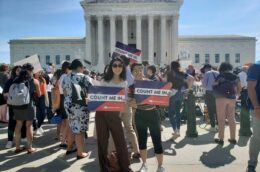We convene a data equity workgroup in partnership with the California Department of Public Health, to ensure data laws are compliant and best practices are institutionalized. We focus on Assembly Bill 1726 as a case study, which mandates the disaggregation of health indicators into more specific AA and NHPI subgroups.
Key resource:

This policy brief presents key challenges to implementing California Assembly Bill 1726, which passed in 2016 and requires the California Department of Public Health to break down broad demographic data it collects into more specific Asian American, Native Hawaiian, and Pacific Islander subgroups.

Featured story
SEARAC Policy Brief Highlights Opportunities, Challenges to Achieve Data Equity for AA and NHPI Communities in California
SEARAC is proud to release “AB 1726: A California Case Study on Disaggregating Public Health Data by Race and Ethnicity,” a new policy brief that presents key challenges to implementing California Assembly Bill 1726, which passed in 2016 and requires the California Department of Public Health (CDPH) to break down broad demographic data it collects into more specific Asian American, Native Hawaiian, and Pacific Islander (AA and NHPI) subgroups.
Learn more
“Data disaggregation is a decades-long advocacy issue that Native Hawaiian and Pacific Islander (NHPI) communities have fought for and will continue to fight for until our communities are thriving. EPIC understands data disaggregation is one of the critical ways to uncover and address NHPI health and social inequities. AB 1726 would make the health outcomes of additional NHPI ethnic groups including Tongans and Fijians visible.”
Empowering Pacific Islander Communities

“Southeast Asian Americans (SEAAs) experience unique health inequities due to our experiences with war, genocide, and displacement. For example, heart disease and cancer are the leading causes of death for SEAAs in California, potentially linked to toxic chemicals used during the violence in Cambodia, Laos, and Vietnam. Almost half of SEAA Californians are limited English proficient and experience linguistic and cultural barriers to accessing care. Community leaders and policymakers need disaggregated data in order to identify disparities various populations face and create evidence-based solutions that improve health outcomes for all.”
SEARAC

Subscribe to our newsletter for the latest updates on the SEARAC community, and to learn more about how you can get involved.
June is a month of exemplifying intersectionality: SEAA communities are celebrating Pride Month, Immigrant Heritage Month, and World Refugee Day! It`s a time to embrace all aspects of our identities and take pride in who we are and where we come from. Thank you to @nataliepbui, SEARAC`s first-ever artist-in-residence, for beautifully capturing the joy and vibrancy of our communities through her art.
This year, Southeast Asian American communities across the country are honoring the 50th commemoration of Southeast Asian refugee resettlement to the United States. June reminds us that there is space for the fullness of who we are to exist. We celebrate the refugee legacy of our Southeast Asian American community and honor those who paved the way for us to celebrate Pride.
#pride #pridemonth #RefugeePride #ImmigrantPride #WorldRefugeeDay #ImmigrantHeritageMonth
Jun 30

Nearly 1 in 5 Southeast Asian Americans live at or near poverty—and for many, federally funded education programs are the difference between falling behind or moving forward.
Many SEAA students rely on school support systems built for low-income families.
Cutting these funds means SEAA students will lose the resources they need to thrive.
Our children deserve equal chances—not underresourced classrooms. Tell your US senators to vote NO at the link in our bio and/or call (202) 224-3121 #OurRootsOurPower
Jun 26

Today SEARAC is joining partners across the country to demand the Senate vote NO on the reconciliation bill. Congress is racing to pass a big bad bill that will fund tax cuts for billionaires and supercharge deportations. Tell your US senators to vote NO at bit.ly/SEAApower #OurRootsOurPower
Jun 26

Right now, SEARAC is on the Hill with our #LAT2025 cohort, demanding the Senate vote NO on the reconciliation bill. Congress is racing to pass a big bad bill that will fund tax cuts for billionaires and supercharge deportations. Join us and tell your US senators to vote NO at the link in our bio and/or call (202) 224-3121. #OurRootsOurPower
Jun 26

We’ve officially wrapped up Day 2 of SEARAC’s LAT program! Today was a powerful journey through reflection as participants looked back at the history of our Southeast Asian American community, recognizing where we stand today, and envisioning the future we’re working toward.
Our communications team led a workshop on how to create your narrative, followed by a dynamic panel on Advocacy Communications with our incredible partners. We closed out our day with music, movement, and dancing!
Tomorrow, our participants will take their voices to Capitol Hill, meeting with legislators to advocate for policies that directly impact Southeast Asian American communities. We couldn’t be more proud of the strength, courage, and collective power they’ve built. #LAT2025
Jun 25






